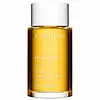What's inside
What's inside
 Key Ingredients
Key Ingredients

No key ingredients
 Benefits
Benefits

No benefits
 Concerns
Concerns

 Ingredients Side-by-side
Ingredients Side-by-side

Prunus Amygdalus Dulcis Oil
Skin ConditioningIsopropyl Palmitate
EmollientIsopropyl Myristate
EmollientDiisopropyl Adipate
EmollientParfum
MaskingCaprylic/Capric Triglyceride
MaskingGlyceryl Caprylate
EmollientCaprylyl Glycol
EmollientTocopheryl Linoleate
AntioxidantBenzotriazolyl Dodecyl P-Cresol
UV AbsorberEthylhexylglycerin
Skin ConditioningPentaerythrityl Tetra-Di-T-Butyl Hydroxyhydrocinnamate
AntioxidantBisabolol
MaskingHelianthus Annuus Seed Oil
EmollientOpuntia Ficus-Indica Seed Oil
EmollientLimnanthes Alba Seed Oil
Skin ConditioningCamellia Sinensis Seed Oil
HumectantRosa Canina Fruit Oil
EmollientWater
Skin ConditioningTocopherol
Antioxidant1,2-Hexanediol
Skin ConditioningOpuntia Ficus-Indica Stem Extract
Skin ConditioningBenzyl Salicylate
PerfumingHexyl Cinnamal
PerfumingCitronellol
PerfumingEugenol
PerfumingAmyl Cinnamal
PerfumingLimonene
PerfumingPrunus Amygdalus Dulcis Oil, Isopropyl Palmitate, Isopropyl Myristate, Diisopropyl Adipate, Parfum, Caprylic/Capric Triglyceride, Glyceryl Caprylate, Caprylyl Glycol, Tocopheryl Linoleate, Benzotriazolyl Dodecyl P-Cresol, Ethylhexylglycerin, Pentaerythrityl Tetra-Di-T-Butyl Hydroxyhydrocinnamate, Bisabolol, Helianthus Annuus Seed Oil, Opuntia Ficus-Indica Seed Oil, Limnanthes Alba Seed Oil, Camellia Sinensis Seed Oil, Rosa Canina Fruit Oil, Water, Tocopherol, 1,2-Hexanediol, Opuntia Ficus-Indica Stem Extract, Benzyl Salicylate, Hexyl Cinnamal, Citronellol, Eugenol, Amyl Cinnamal, Limonene
Ingredients Explained
These ingredients are found in both products.
Ingredients higher up in an ingredient list are typically present in a larger amount.
Citronellol is used to add fragrance/parfum to a product. It is often derived from plants such as roses. In fact, it can be found in many essential oils including geranium, lavender, neroli, and more. The scent of Citronellol is often described as "fresh, grassy, and citrus-like".
Since the Citronellol molecule is already unstable, Citronellol becomes irritating on the skin when exposed to air.
Citronellol is a modified terpene. Terpenes are unsaturated hydrocarbons found in plants. They make up the primary part of essential oils.
Citronellol is not able to be absorbed into deeper layers of the skin. It has low permeability,
Citronellol is also a natural insect repellent.
Learn more about CitronellolLimonene is a fragrance that adds scent and taste to a formulation.
It's found in the peel oil of citrus fruits and other plants such as lavender and eucalyptus. The scent of limonene is generally described as "sweet citrus".
Limonene acts as an antioxidant, meaning it helps neutralize free radicals.
When exposed to air, oxidized limonene may sensitize the skin. Because of this, limonene is often avoided by people with sensitive skin.
The term 'fragrance' is not regulated in many countries. In many cases, it is up to the brand to define this term. For instance, many brands choose to label themselves as "fragrance-free" because they are not using synthetic fragrances. However, their products may still contain ingredients such as essential oils that are considered a fragrance.
Learn more about Limonene